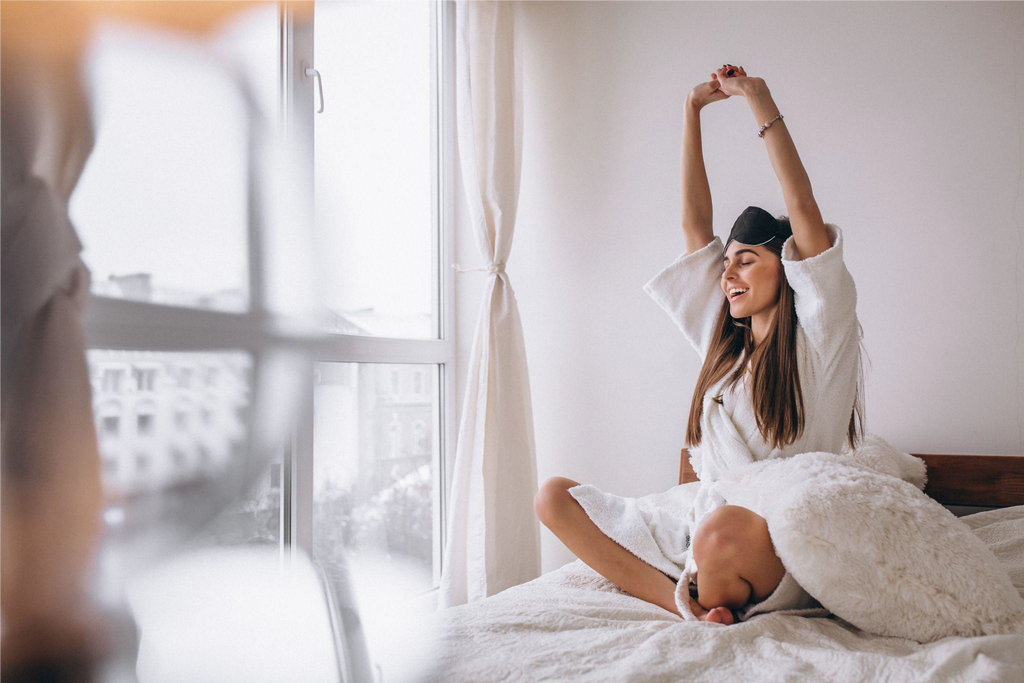
Tips for sleeping through the night
Everyone has those nights when you can’t turn off your thoughts, you are tossing and turning and you can’t fall into a deep sleep. But there are tips to help you sleep through the night and to learn to sleep better. Discover our tips for sleeping through the night.
Sleep schedule
Although your sleep environment at night is important for achieving a good night’s sleep, your habits and behaviours during the day also contribute and have a great influence on your sleep cycle. If you have problems sleeping or just want to improve your sleep quality, you can start working on this by implementing a consistent sleep schedule for weekdays, weekends and even holidays.
Relaxation techniques
Breathing and visualisation exercises can improve the natural process of sleep. We can calm the mind, relax the body and help ourselves to fall asleep naturally. If you find yourself lying awake in bed, taking 10 deep breaths is the best way to activate your body’s natural relaxation response and create a sense of calm. You can also try meditation exercises, which are based on using mental imagery to create a sense of calm in the body. Start by taking a few deep breaths and let your mind wander to a peaceful scene.
Avoid blue light
Make sure you put your electronics away long enough before you go to bed so that you can relax. The reason you may feel less sleepy at night and sometimes find it harder to fall asleep is that televisions, smartphones, tablets, computers and gaming systems all emit blue light that promotes alertness and mental sharpness. This is great if you wake up in the morning and get an energy boost from the clear morning sky that also emits natural blue light, but too much blue light at night can keep you awake when your body should be resting. Our eyes are not the best at blocking blue light, so it travels directly to the back of your retina and your brain then translates the light into images. Try to avoid using your electronic devices between 30 minutes and an hour before bedtime.
Find the ideal temperature for sleeping
One of the best sleep tips is to make sure your bedroom is cool so you don’t end up tossing and turning. Especially now that it’s starting to get warmer. As our bodies depend on a falling temperature to fall asleep, the warmer our bedroom gets affects our attempts to get to sleep. It is said that the ideal temperature for falling asleep peacefully is around 18 degrees. So turning down the heating can help regulate your body temperature.
Stop daytime sleep
If we don’t get enough sleep at night, we can sometimes end up in a vicious circle of naps of 20 or 30 minutes during the day. This in turn will affect the sleep cycle and the ability to fall asleep at night. Prolonged naps of around 45 minutes that occur close to the scheduled bedtime can lead to insomnia as a result. Staying awake longer increases the desire for sleep and raises adenosine levels. However, if you sleep during the day, your brain will reduce this and you will have trouble falling asleep at night as a result.
Reduce caffeine intake
It is well known that caffeine promotes alertness and stimulates the brain. Once you have had that cup of coffee or that soft drink, the effects come very quickly. Caffeine levels can peak in your bloodstream within 30 minutes. Caffeine can have positive effects on your mood and mental performance during the day, but it goes without saying that caffeine consumption just before bedtime, or even in the early evening, can contribute to sleep deprivation or difficulty falling asleep. Discover CLEAR FOCUS™ CAFFEINE FREE!
Hit the follow button: Facebook | Instagram | LinkedIn | YouTube
